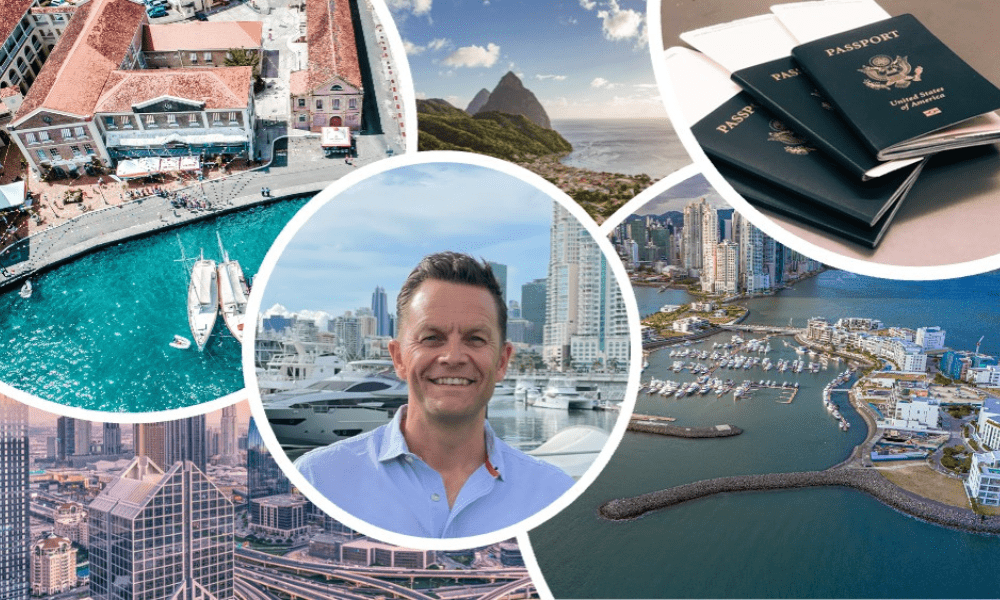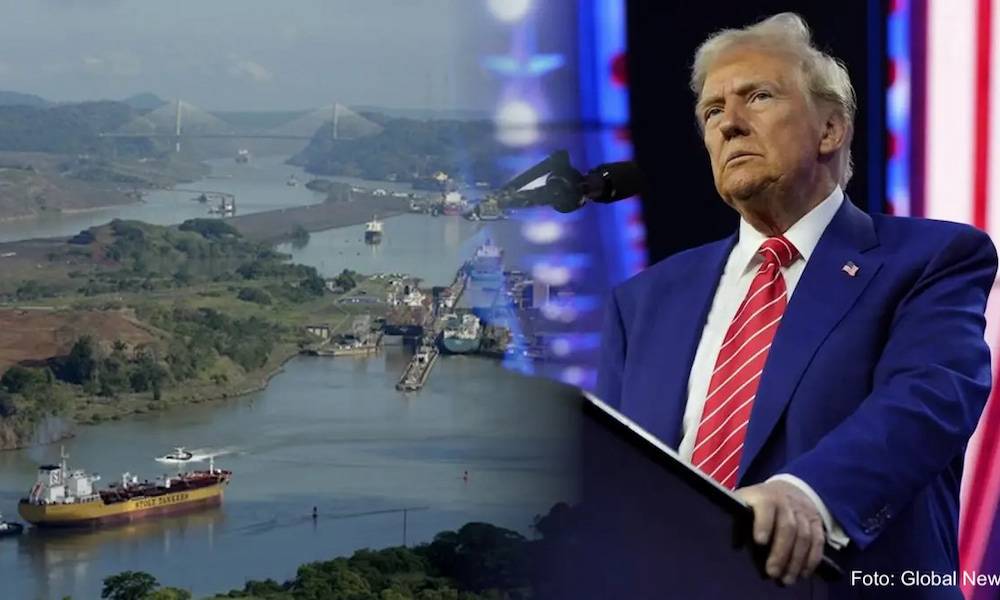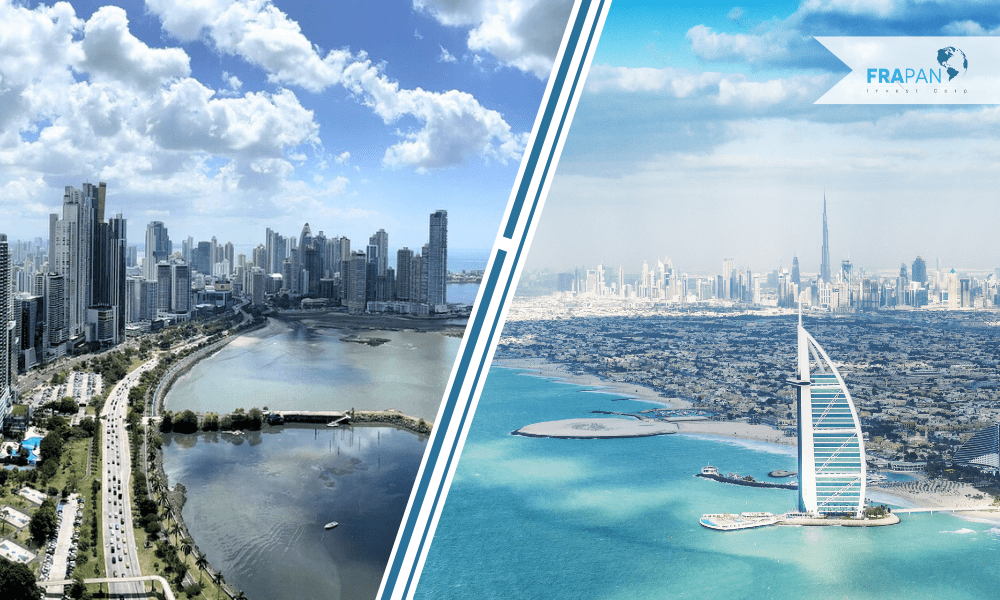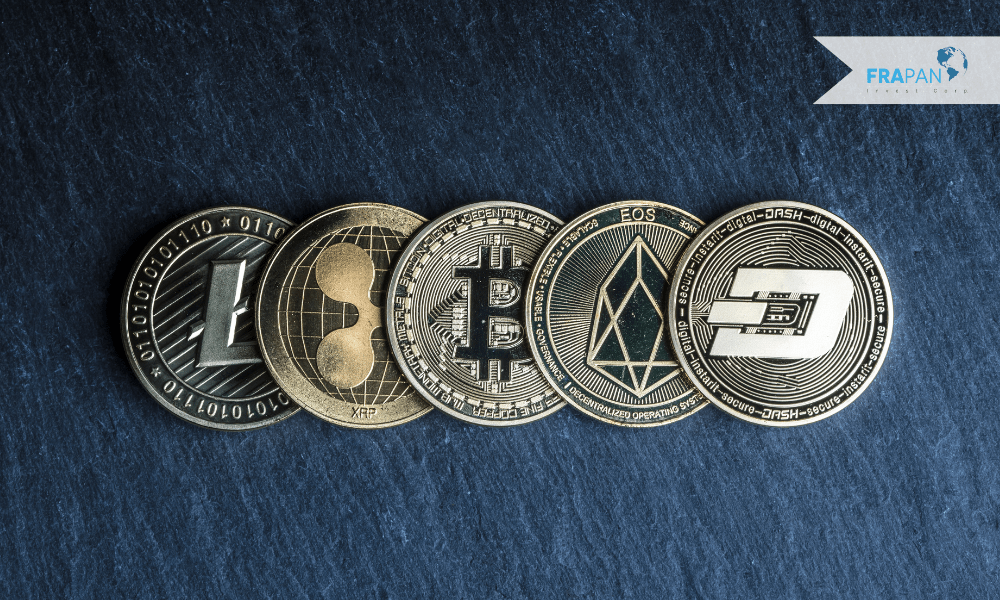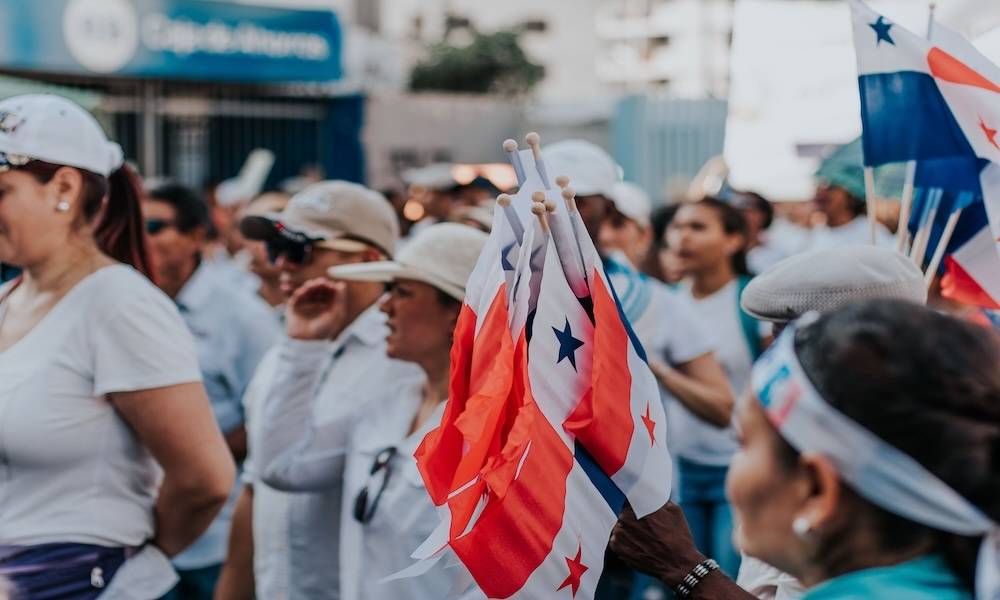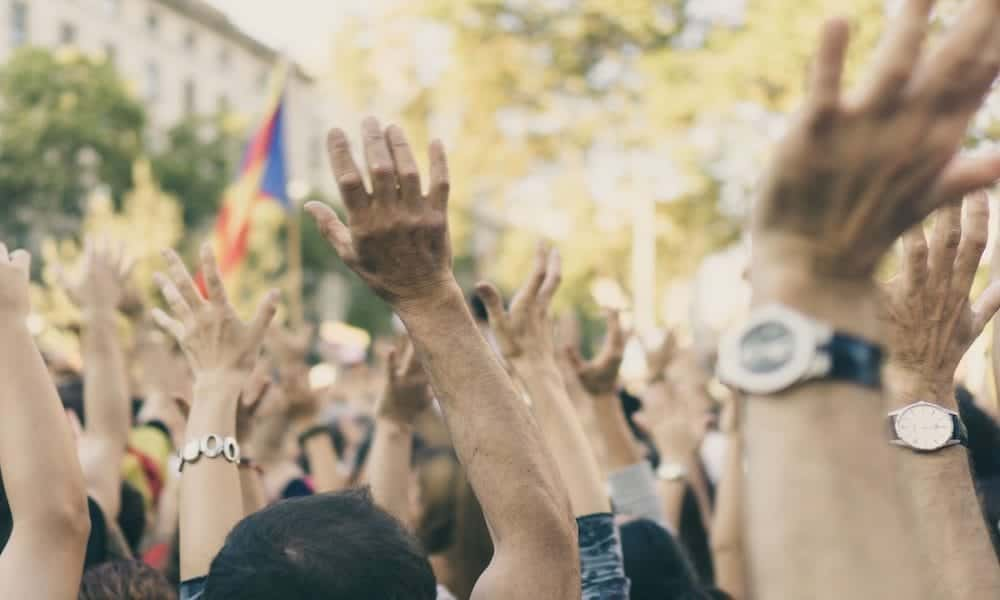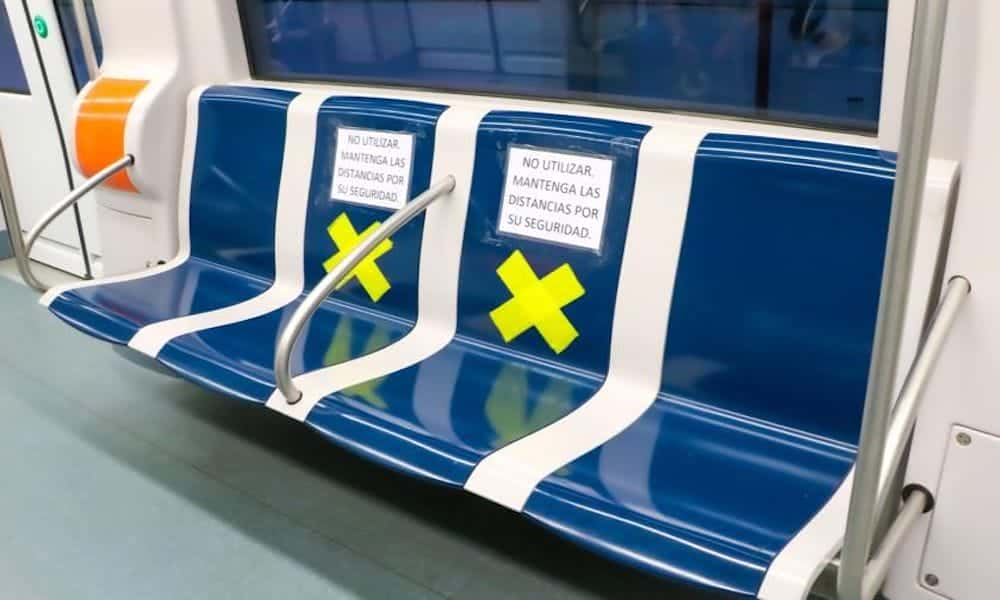- Our Offer
- Your investment opportunities
- Plan B & Emigrate
- News
- Panama
- Team
- Contact


Category: Economy & Politics
Second citizenship & Panama: your plan B for security and freedom in 2025
The current geopolitical situation, with a possible resumption of compulsory military service, a potential escalation of the war between Ukraine and Russia and other tensions, clearly shows that the security and stability that used to be taken for granted are no longer the case. More and more people are therefore looking for a Plan B for their family – a second citizenship is a safeguard that creates independence, protection and new prospects.
Global passports are a crucial building block in this process: a second citizenship or even several passports, which are made possible by targeted investments. In combination with a residence permit in Panama and investments in real estate, this creates a unique basis for security, mobility and financial freedom.

Why a second passport is so important today
A second passport offers protection in times of crisis and considerably increases freedom of action. In uncertain times, it can:
- Ensure international mobility – even if borders are closed.
- Enable residence in safe countries.
- Open up additional options for the family – from education to career opportunities.
- Provide valuable protection against geopolitical risks.
Many countries now offer so-called Passport by Investment or Citizenship by Investment programs, which allow investors to acquire a second citizenship.
Important: These programs for a second citizenship are not available in Panama, but in other selected countries worldwide. In Panama itself, the focus is on obtaining lifetime residency, which already offers significant benefits. Only after 5 years of holding permanent residency is it possible to apply for Panamanian citizenship.
Why Panama is the ideal starting point
Panama is considered one of the best places in the world for a Plan B. The country impresses with:
- Stable democracy and economy
- Visa programs with easy application for a residence permit
- The opportunity to apply for Panamanian citizenship after 5 years of holding permanent residency
- Attractive opportunities to invest in Panama – especially through real estate
- A modern banking system that meets international standards
At FRAPAN Invest, we have been the market leader in Europe for many years when it comes to real estate in Panama, residence permits and bank accounts. Together with a Swiss partner company specializing in Citizenship by Investment, we also provide access to second citizenships and global passports – offering more security, mobility, and flexibility.
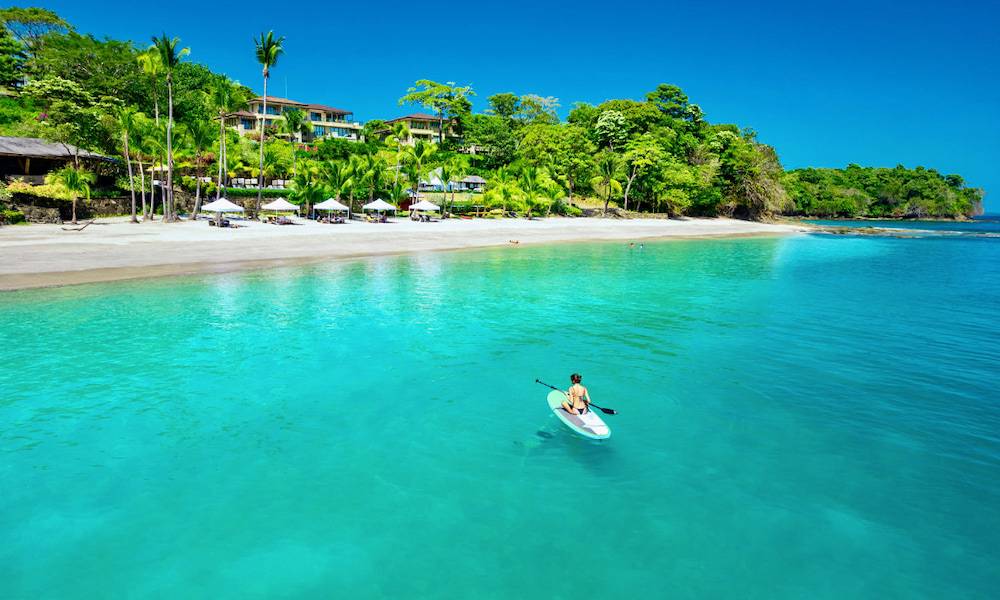
The perfect combination: Panama & worldwide passports
Those who combine lifetime residency in Panama with a second citizenship through investment in another countryachieve maximum flexibility:
- A secure location for your life and your investments
- The ability to react quickly to geopolitical changes
- More freedom for your family thanks to multiple options
- A clear advantage in a world that is becoming increasingly uncertain
Conclusion
A plan B for the family is more important today than ever. With Panama as a secure location for real estate, visas and bank accounts – combined with the option of worldwide passports via Passport by Investment – you can ensure stability, mobility and long-term freedom for you and your family.
👉 Contact us to find out more about your individual options. Together we will develop your personal Plan B in Panama – and beyond.
FRAPAN-Invest
Klaus Happ’s company “FRAPAN-Invest” advises investors who want to invest in real estate in Panama. Furthermore, Klaus Happ will be happy to advise you personally on the subject of “Plan B in Panama”.
The real estate market in Panama is internationally one of the most interesting for investments. We would like to be your trusted local partner and assist you with the initial purchase. Additionally, we can take care of your real estate in Panama in a sustainable way.
Profitable, safe and beautiful:
Investments in Panama
Trump’s Interest in Panama
Donald Trump’s interest in Panama and the strategic importance of the Panama Canal also remains high on the international stage. We take a look at the historical partnership between Panama and the USA as well as current developments affecting the relationship between the two countries, particularly in the context of Trump’s involvement.
Historic Partnership between Panama and the USA
Panama’s relationship with the USA has a long history dating back over a century. The construction of the Panama Canal between 1904 and 1914 represents a crucial point in this relationship and was under US administration until December 31, 1999. It is of great importance for global trade and is a central source of income for Panama. The Torrijos-Carter Treaty of 1977, signed by Omar Torrijos and US President Jimmy Carter, finally secured Panama’s full sovereignty over the canal. This was an important achievement for Panama and strengthened its national identity.
Trump’s Interest in Panama: Current Developments in the Panama Canal
On February 2, 2025, an important meeting took place between US Secretary of State Marco Rubio and Panamanian President José Raúl Mulino in Panama City. Topics such as curbing illegal migration and competition for US companies were discussed. One sensitive topic was China’s influence on the Panama Canal. Trump and the US are expressing concerns about the presence of Chinese companies, in particular CK Hutchison Holdings, which also operates in the US. This situation is exacerbated by China’s involvement in the Silk Road Initiative, where it is investing in infrastructure. Panama has decided not to renew the existing contract with China regarding the Silk Road policy in 2026. In addition, the US has demanded lower canal transit fees in order to improve its trading conditions.
BlackRock acquires the Panama Ports
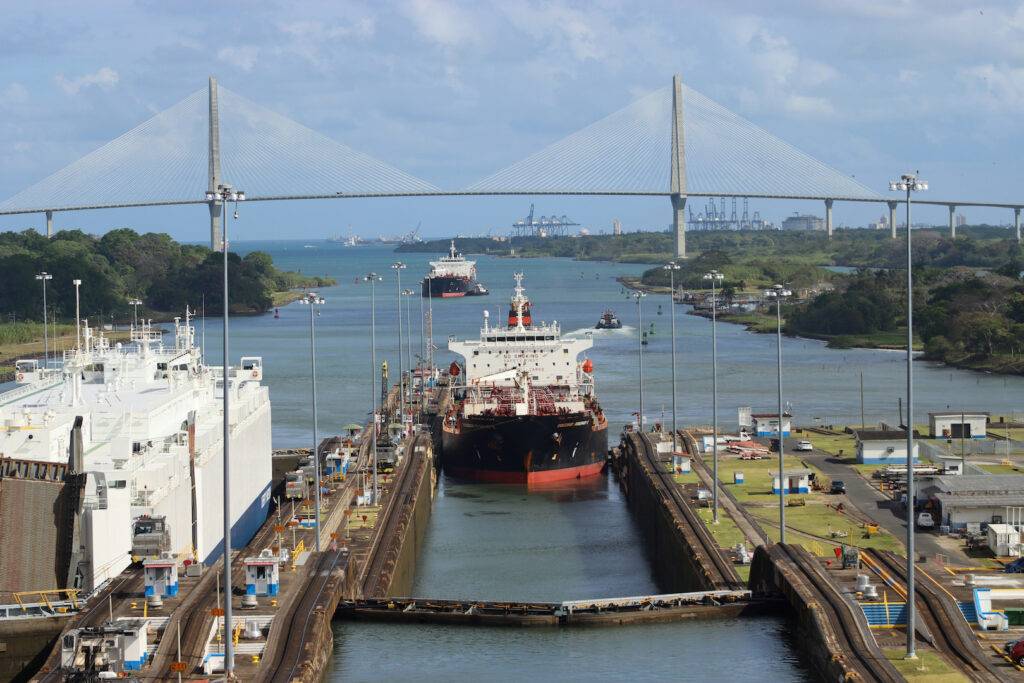
Now, an investment group led by BlackRock has acquired two of Panama’s largest port operations from Hong Kong-based CK Hutchison. The acquisition involves the Balboa and Cristóbal port operations, located at either end of the Panama Canal, and is part of a deal worth 22.8 billion dollars that includes a total of 43 ports in 23 countries. CK Hutchison had managed the Panamanian port operations for over two decades.
President Donald Trump has stated that the purchase was in response to his efforts to “regain control” of the Panama Canal, though the deal had reportedly been in the works for months. Company officials emphasized that Hutchison received numerous offers to purchase the ports. Furthermore, they clarified that the transaction was purely commercial in nature, as well as unrelated to recent political reports.
However, the acquisition is seen as a way to defuse tensions around the canal. With an American company controlling the two port operations, the rhetoric about “China’s control” of the canal could be softened. This could be an elegant solution for both sides.
Working together to tackle the Refugee Crisis
Another important aspect of bilateral relations is the joint work of the US and Panama to tackle the refugee crisis. Many refugees try to reach the USA via Central America, and both countries have agreed to control illegal migration flows and find humane solutions to the refugee situation in the region. This cooperation underlines the commitment of both nations, not only in economic but also in humanitarian matters.
Conclusion: Panama as a Key Player in the global Economy
Panama remains an important player in the global economy, and Trump’s interest in Panama and the strategic role of the Panama Canal influence geopolitical relations with the US. The challenges posed by China’s influence over the Panama Canal and strategic ports are relevant to U.S. foreign policy. Despite these tensions, both nations are working together to find a common path that serves their interests and promotes stability in the region.
Panama offers not only a historical and strategic position, but also an ideal environment for investors and expatriates. If you are thinking of starting life in Panama, we at FRAPAN-Invest are your contact. As the market leader in German-speaking Europe for real estate in Panama and visas in Panama, we support you in emigrating to Panama.
Whether you are buying a property in Panama or planning to acquire a residence permit in Panama, we can help you apply for the Friendly Nations Visa Panama or the Golden Investor Visa Panama. Take advantage of this opportunity and explore the best countries to emigrate to. Our experienced team and network of German-speaking partner attorneys are ready to help you every step of the way. Experience life abroad in Panama!
FRAPAN-Invest
Klaus Happ’s company “FRAPAN-Invest” advises investors who want to invest in real estate in Panama. Furthermore, Klaus Happ will be happy to advise you personally on the subject of “Plan B in Panama”.
The real estate market in Panama is internationally one of the most interesting for investments. We would like to be your trusted local partner and assist you with the initial purchase. Additionally, we can take care of your real estate in Panama in a sustainable way.
Profitable, safe and beautiful:
Investments in Panama
Panama versus Dubai – The ideal Plan B
In a world filled with economic uncertainties and unstable political environments, more and more people are searching for a Plan B abroad. You may already be considering Dubai, as this international metropolis offers many advantages for your investments. But have you also considered Panama as an exciting alternative? We make the comparison: Panama versus Dubai.
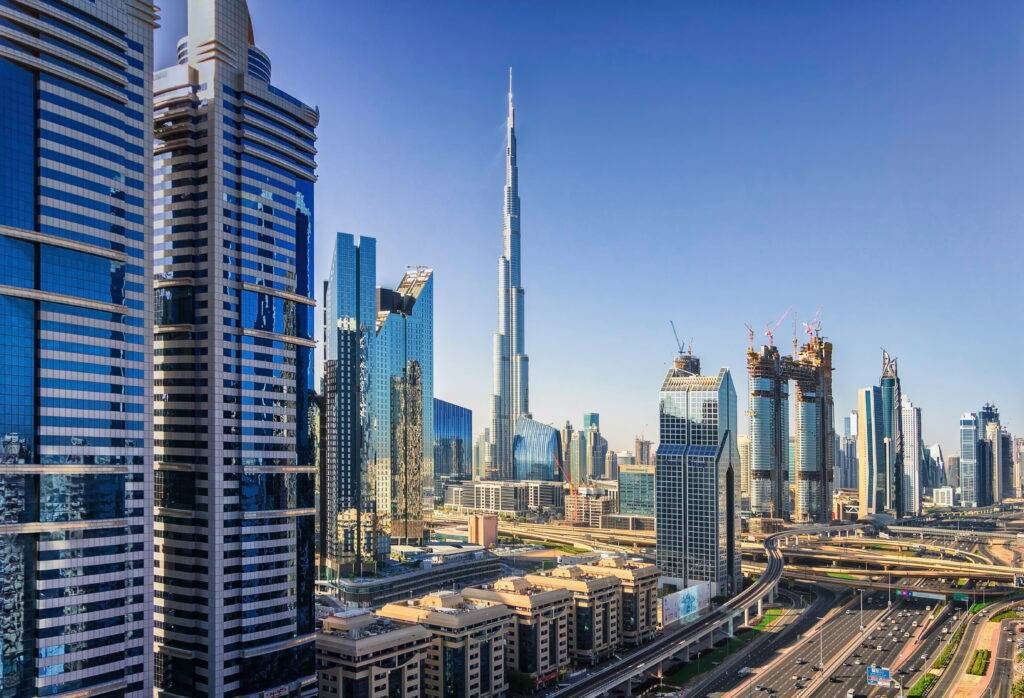
Dubai: Glitz and Glamour
Dubai is known for its impressive skyline, luxurious hotels, and exclusive shopping options. The city attracts investors from around the world and is considered a hub for business activities.
However, the downsides should also be taken into account: extremely high summer temperatures, an artificial environment, and high living costs can pose long-term challenges. Additionally, life in Dubai is heavily influenced by Muslim customs, which requires cultural adaptation.
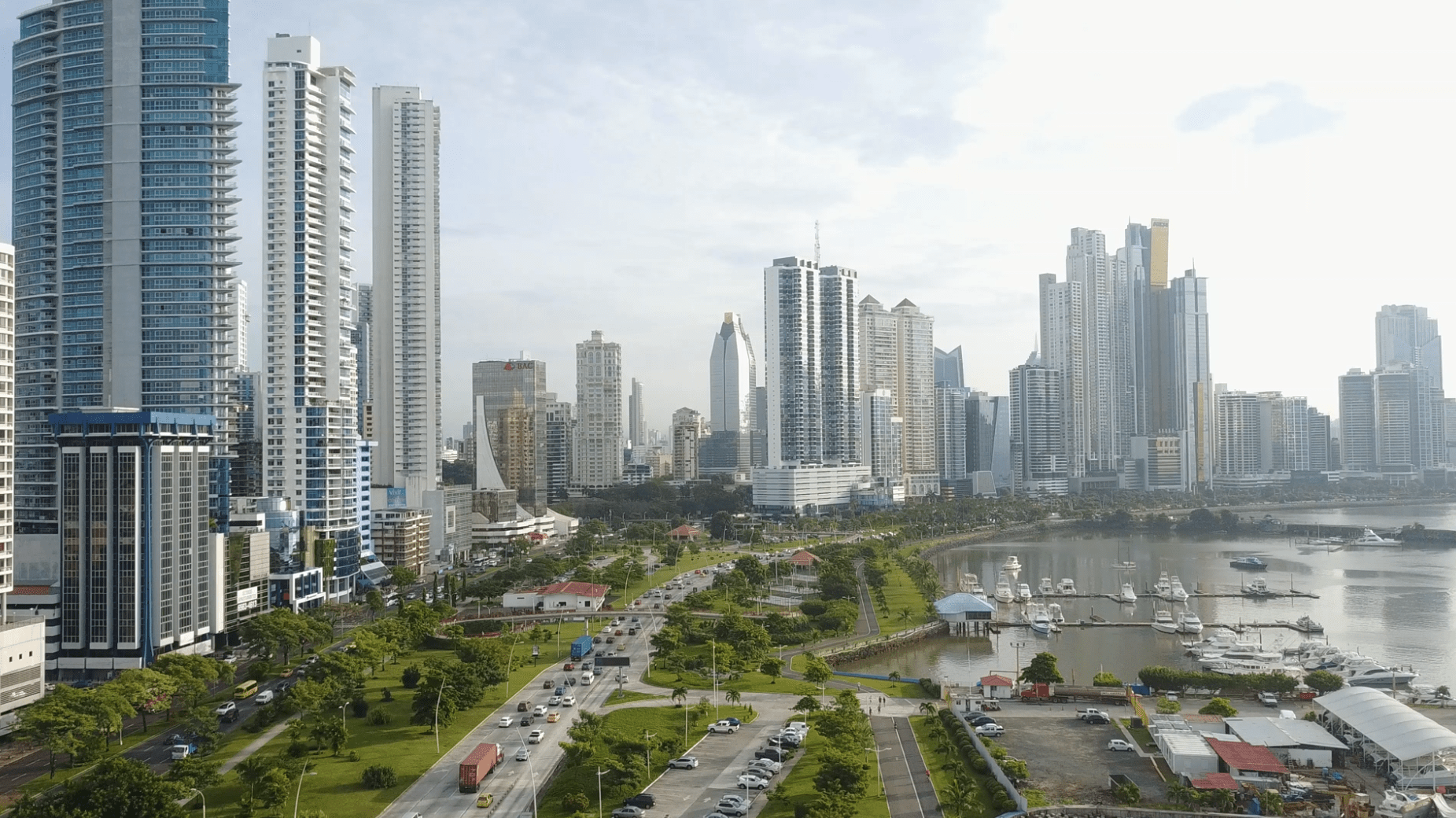
Panama: A Paradise for Investors
In contrast, Panama offers a combination of modern infrastructure, breathtaking landscapes, and an open society. With a pleasant tropical climate and stunning beaches on both the Pacific and the Caribbean, Panama is not only a great place to live but also an ideal destination for investments.
The advantages Panama offers its investors are remarkable:
- Tax Incentives: Panama has a territorial tax system, where only income earned domestically is taxed, making it particularly attractive for international investors.
- Stable Political Situation: Panama has a democratic government and provides a secure environment for investments.
- Quality of Life: The cost of living in Panama is affordable compared to many Western countries, allowing for a high standard of living.
The Fair Comparison
Both countries have their merits, but when it comes to your future, careful consideration is essential. Panama offers a more open society, rich nature, and lower living costs, while Dubai exudes a unique allure with its luxury.
If you are keen to learn more about the differences between Panama and Dubai and discover why Panama is becoming an increasingly important investment location, take a look at our comparison of Panama and Dubai.
LEARN MORE
The Great Comparison: Panama versus Dubai
Conclusion
Ultimately, the decision of which country to invest in depends on your personal goals and preferences. We are here to support you with your plans for Visa and Invest in Panama. Book your free introductory appointment today and find out how we can help you realize your perfect Plan B in Panama.
FRAPAN-Invest
Klaus Happ’s company “FRAPAN-Invest” advises investors who want to invest in real estate in Panama. Furthermore, Klaus Happ will be happy to advise you personally on the subject of “Plan B in Panama”.
The real estate market in Panama is internationally one of the most interesting for investments. We would like to be your trusted local partner and assist you with the initial purchase. Additionally, we can take care of your real estate in Panama in a sustainable way.
Profitable, safe and beautiful:
Investments in Panama
CRYPTOS for Real Estate Purchases
The acquisition of real estate in Panama with cryptocurrencies is now possible. Last week, I was able to arrange with nearly all of our partner developers that our clients can now invest directly in cryptos in Panama. Given the current high levels of cryptocurrencies, this is the perfect time to convert digital assets into hard assets and create a secure Plan B in Panama for the family.
In times of crisis, it is more important than ever to establish a solid foundation. Purchasing a property in Panama not only offers stability and security but also provides the opportunity to apply directly for a residence permit in Panama, such as the Golden Investor Visa.
Benefits of Buying Real Estate with Cryptocurrencies:
- Utilize current high values
- Convert digital assets into real estate
- Realize visas with cryptocurrencies
- Secure your Plan B for the family
- Wide selection of real estate projects
- Fast transaction methods
Purchase Process with Crypto in Panama:
- German-speaking partner lawyers will guide you competently through the purchase process
- Payment in USDT (Tether) through the appropriate network to the developer
- Conversion to USD is done with the developer
- Transaction costs of 1.5% – 3% for the conversion, depending on the project
- Coordination of the transaction directly with the developer
- Some developers also accept Bitcoin (BTC) and Ethereum (ETH)
- On request, support for opening your own crypto-friendly account
- Legal verification of the buyer and the origin of the cryptocurrencies
If you are interested in the various real estate projects where you can pay with cryptocurrencies, we look forward to your message via the contact form.
Discover the opportunities that the combination of real estate investments and cryptocurrencies in Panama offers you, and realize your Plan B in Panama.
FRAPAN-Invest
Klaus Happ’s company “FRAPAN-Invest” advises investors who want to invest in real estate in Panama. Furthermore, Klaus Happ will be happy to advise you personally on the subject of “Plan B in Panama”.
The real estate market in Panama is internationally one of the most interesting for investments. We would like to be your trusted local partner and assist you with the initial purchase. Additionally, we can take care of your real estate in Panama in a sustainable way.
Profitable, safe and beautiful:
Investments in Panama
Political crisis: challenges and opportunities
Panama is currently experiencing a political crisis, which has been accompanied by demonstrations and road blockades for around three weeks. The population is angry about the rapid approval of a controversial mining contract with Minera Panama, a subsidiary of the Canadian company First Quantum Minerals. A broad alliance of groups, including trade unions, teachers’ associations and youth organizations, have called for nationwide demonstrations to protest against the contract and demand a ban on mining.
The protesters are criticizing the negative environmental impact of open-cast mining, as well as the unfair conditions and various one-sided advantages for the Canadian company.
The copper mine in Panama has been operational since 2019 and is one of the largest in the world.
It is an important part of Panama’s economy (4.8% of GDP) and a major employer (2.3% of total employment).
Meanwhile the opportunity is also used to draw attention to dissatisfaction with the current government in terms of corruption, slow action, etc. At the same time, the opposition parties and trade unions are fueling the mood to put pressure on the current government during the election campaign. Government elections will be held again in Panama in May next year (every 5 years).
The crisis offers the opportunity for a social debate on the sustainable economic development of the country. The government must seek dialog with interest groups in order to listen to their concerns and demands. Above all, they have to find solutions that guarantee economic opportunities as well as environmental protection and social prosperity. Likely, this will also have positive consequences for the future, as lessons will be learned from mistakes made. A new government will have to heed the voice of the people on these issues and act in their interests.
Panama has a history of overcoming challenges, otherwise it would not be the flagship country of the region and the headquarters of major multinational corporations in Latin America.
FRAPAN-Invest
FRAPAN-Invest
Klaus Happ’s company “FRAPAN-Invest” advises investors who want to invest in real estate in Panama. Furthermore, Klaus Happ will be happy to advise you personally on the subject of “Plan B in Panama”.
The real estate market in Panama is internationally one of the most interesting for investments. We would like to be your trusted local partner and assist you with the initial purchase. Additionally, we can take care of your real estate in Panama in a sustainable way.
Profitable, safe and beautiful:
Investments in Panama
Protests in Panama
Panama is a quiet and peaceful place to live. However, in July there were protests and street blockades, the likes of which have not been seen in over 30 years. In the meantime, the situation has returned to normal. Find our report on the background here.
In July, there were mass protests and street blockades all over the country. This was triggered by the increased cost of living and expensive energy prices, which the whole world is currently struggling with. This was joined by demonstrations against the ever-smouldering issue of corruption and other issues that are a thorn in people’s side. Basically, people in Panama like to demonstrate peacefully, but not in a way that affects the country’s transport system and infrastructure.
This time, however, the protests were more violent and partly deliberately organised by trade union groups (including the construction union), associations and other groups that wanted to fuel the mood and exploit it for their own benefit.
After all, presidential elections will be held in 2024 and the election campaign will start soon. This is where an unsettled mood and publicity-grabbing pictures in social media are to the advantage of one or the other. And if you then bring your own photographers into the crowd and create exaggerated images, you exaggerate the event in your favour.
The provinces of Chiriqui and Veraguas, which are located in the interior of the country, were the centre of the largest protests. Here there were some clashes with the police and complete road blockades of the Panamaericana, which is by far the most important traffic artery and connects the country.
In the capital Panama City, things were comparatively quiet. But the protests in the interior had a short-term impact on supplies in the supermarkets, because the country’s own products such as vegetables were stuck on the Panamericana.
The unanimous opinion of the people in Panama we spoke to is that protests (especially against corruption) are good as long as they remain peaceful and meaningful. But the protesters, who took to the streets for the “people”, have partly harmed themselves. Less well-stocked supermarket shelves and farmers and other traders who made huge losses and had to throw away their products.
At the beginning of the protests, the government had hidden and hoped that the problem would solve itself. But now the government has been sitting at the table with the different interest groups (and there are many of them…) for weeks to find solutions and compromises. The government has made several concessions, including subsidising fuel prices and “freezing” the prices of other staple foods. Negotiations are still ongoing, including on the prices of medical and pharmaceutical products.
The people responsible for stopping the trucks carrying food have now been arrested.
These protests cannot be compared to the violent protests in other countries in Central and South America. But they should be a warning to the government to tackle the problem of corruption in a targeted way and to distribute the country’s large revenues (from the Panama Canal, among other things) fairly and invest them sensibly (education and medical care for all strata of the population, etc.).
Extreme parties from the left and right have never had a chance in Panama, because the population is aware of the bad developments in other Latin American countries. This can also be assumed in the 2024 elections.
FRAPAN-Invest
Klaus Happ’s company “FRAPAN-Invest” advises investors who want to invest in real estate in Panama. Furthermore, Klaus Happ will be happy to advise you personally on the subject of “Plan B in Panama”.
The real estate market in Panama is internationally one of the most interesting for investments. We would like to be your trusted local partner and assist you with the initial purchase. Additionally, we can take care of your real estate in Panama in a sustainable way.
Profitable, safe and beautiful:
Investments in Panama
“BaseCamp” plans to develop a technology park in Panama
The prominent Israeli company “BaseCamp” will develop a technology and innovation park in Panama. The goal is to make Panama a digital hub in Latin America. This will involve attracting technology companies from around the world, building start-ups and improving education in Panama.
By clicking on the link you can access the report.
FRAPAN-Invest
Klaus Happ’s company “FRAPAN-Invest” advises investors who want to invest in real estate in Panama. Furthermore, Klaus Happ will be happy to advise you personally on the subject of “Plan B in Panama”.
The real estate market in Panama is internationally one of the most interesting for investments. We would like to be your trusted local partner and assist you with the initial purchase. Additionally, we can take care of your real estate in Panama in a sustainable way.
Profitable, safe and beautiful:
Investments in Panama
Corona virus in Panama / update 30 March 2020
The corona virus has arrived in Panama and there are currently 989 cases and 24 deaths (as of 29 March 2020). The Panamanian government has taken strict measures very early in order to control the virus spread. This is to prevent the stress on the health system, which is of course not as stable in a country like Panama as in Germany. Panama has a very young population (average age 26 years / Germany 44 years), which hopefully will help to keep the mortality rate low. The United Nations praised Panama’s measures from the beginning as a model for Latin America (Info-Link).
Here is an overview of the measures:
- Within 30 days a new hospital for corona patients will be built (module construction system, which allows to use it in other places in the future).
- Since 25.March there is a curfew throughout the country. People are only allowed to leave their homes for two hours a day to do their shopping. Who thinks that Panama does not get this organized is wrong. The end number of the identity card of everybody in Panama determines on which two hours a day this has to happen. This automatically avoids overcrowding in supermarkets, pharmacies, etc. and the meeting of many people. Pensioners have their own time of day when they can do their shopping in peace.
- The streets are controlled and non-compliance is sanctioned.
- Exceptions are professionals at the Panama Canal, in banks, in some authorities and of course in hospitals and other security related institutions. Otherwise, work is done via home office.
- All international passenger flights are suspended until 22. April.
- China has donated 5,000 corona tests and other medical equipment to Panama.
- The government is using 2,000 hotel rooms in Panama City (including the Hard Rock Hotel) to isolate corona patients who have tested positive.
- The government distributes 30,000 shopping vouchers to socially weak families worth USD 1.5 million. In addition, thousands of food packages are given away every day.
- Electricity prices are reduced by 30% – 50% and credit payments can be delayed.
Panama has responded very quickly to the new situation, but we have to wait and see how it develops and how the measures work, as is the case all over the world.
The measures taken will have a negative impact on the economy in Panama, as everywhere else in the world. The tourism sector (the main season is fortunately almost over) including the cruise sector and the gastronomy sector are particularly suffering.
The service sector represents about 70% of the Panamanian economy. The main service sectors are logistics, trade, finance and tourism. Thanks to the Panama Canal, the country generates annual revenues between 2 – 2.5 billion USD, which is a lot for a country with 4.2 million inhabitants. Accordingly, great importance is currently attached to the Panama Canal and the seaports functioning as usual, as approximately 6% of world trade flows through the Canal. Currently, many corona supply measures of Latin American countries are organized from Panama (“Hub of the Americas”). The Panama Canal will help to stabilize government revenues. Even if these stable Panama Canal revenues will be lower than normal in the current difficult times. The canal is a windfall for the small country.
The construction sector in Panama is another important component. Currently, construction in Panama is at a standstill due to the corona measures. The “reactivation of the construction sector” with the large infrastructure projects (third metro line, fourth bridge over the Panama Canal, new copper mine) will give Panama’s economy a boost again. Let us hope that we will return to normality in Panama as quickly as possible, as in the whole world.
FRAPAN-Invest
Klaus Happ’s company “FRAPAN-Invest” advises investors who want to invest in real estate in Panama. Furthermore, Klaus Happ will be happy to advise you personally on the subject of “Plan B in Panama”.
The real estate market in Panama is internationally one of the most interesting for investments. We would like to be your trusted local partner and assist you with the initial purchase. Additionally, we can take care of your real estate in Panama in a sustainable way.
Profitable, safe and beautiful:
Investments in Panama
